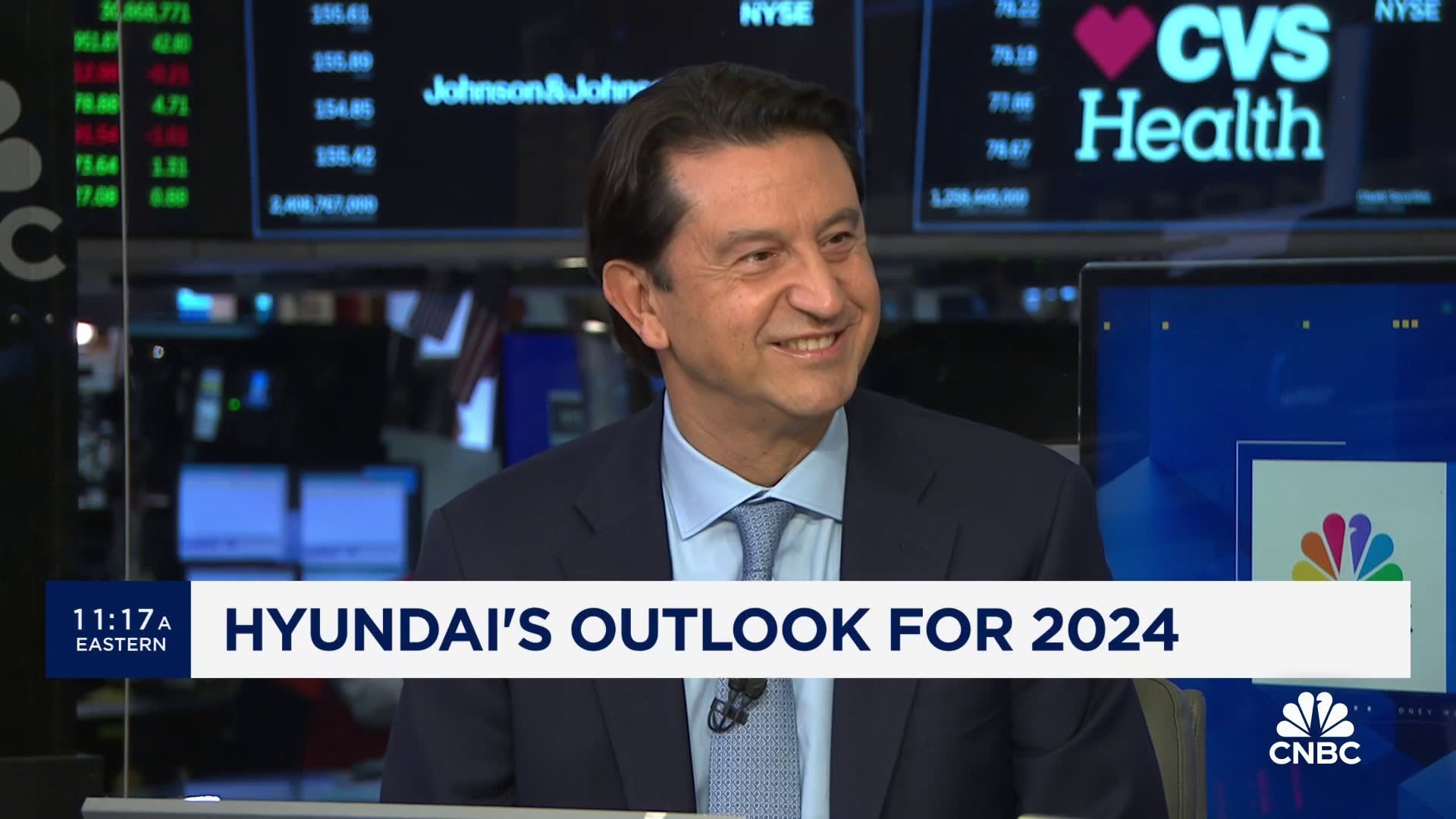When Hyundai Motor introduced Genesis as a standalone luxury brand in 2016, the move was met with skepticism. Many, including industry insiders, questioned if a company primarily known for its affordable vehicles could successfully compete in the fiercely contested luxury car market. Randy Parker and Claudia Marquez, both then executives at Nissan’s Infiniti, were among those doubters. Ironically, both have since joined Hyundai Group, with Parker now leading the Hyundai brand in the U.S. and Marquez at the helm of Genesis in North America.
“We were both looking at it thinking, ‘How will they pull this off?’ It’s a tough challenge, launching a new brand in such a competitive space,” Marquez shared with CNBC at the New York International Auto Show. However, Genesis not only survived but flourished, establishing itself as a significant player in the U.S. luxury segment, known for its distinctive design, opulent comfort, and high-quality vehicles, available in both gasoline and electric powertrains.
Since 2022, Genesis has surpassed Infiniti in annual U.S. sales, a remarkable feat considering Infiniti’s decades-long presence in the market. Genesis executives anticipate sustained double-digit annual growth over the next five years, according to Marquez, who became Genesis’ North American COO in October 2021. “We need to significantly outperform the overall luxury market,” she stated, emphasizing a long-term growth strategy rather than rapid expansion.
Initially, Genesis was a model within Hyundai’s vehicle lineup. However, in late 2015, Hyundai announced its transformation into a separate luxury brand. Since then, Genesis’s U.S. sales have surged from under 7,000 units in 2016 to over 69,000 vehicles last year, demonstrating the brand’s increasing appeal and market penetration under the ownership of Hyundai Motor Group.
Genesis’s Controlled Growth and Market Positioning
Marquez and José Muñoz, Hyundai’s President and global COO, have indicated that while Genesis is projected for substantial growth, it will be strategically managed to maintain vehicle residual values and pricing integrity. Muñoz clarified that while expectations for Genesis remain “high,” its volume targets in the U.S. are more aligned with brands like Porsche rather than the high-volume approaches of Lexus and Mercedes-Benz.
“We still have a considerable journey ahead, but Genesis isn’t designed to be a mass-market brand. Our volume ambitions are measured, but there’s still significant room for expansion,” Muñoz, also CEO of Hyundai Motor and Genesis Motor North America, explained in a separate interview at the New York Auto Show. This controlled growth strategy reflects Hyundai’s commitment to establishing Genesis as a truly premium and exclusive brand within its portfolio.
In 2023, Genesis’s closest competitors in terms of sales volume included Land Rover (71,727 units), Porsche (75,415 units), Lincoln (81,818), and Volvo (128,350). Genesis sales in the same year saw a roughly 23% increase from the previous year, reaching 69,175 vehicles. This positions Genesis as a serious contender in the luxury automotive landscape, backed by the resources and strategic direction of Hyundai Motor Group.
Overcoming Awareness Challenges and Future Performance
One of the primary hurdles for Genesis remains brand awareness, according to Marquez. Stephanie Brinley, principal automotive analyst at S&P Global Mobility, concurs with this assessment. “Genesis has successfully gained credibility as a luxury automaker; now, the focus needs to shift towards broadening its audience,” Brinley noted. “The brand is now respected, but not enough consumers are yet fully aware of what Genesis offers. That’s the key area for growth right now.” Hyundai understands this and is actively working to elevate Genesis’s visibility and market presence.
To accelerate awareness and sales, Genesis is introducing new “Magma” performance models. The company announced plans to offer a performance variant for each model in its lineup, signaling a move to attract enthusiasts and further differentiate itself in the luxury market. This strategic direction, driven by Hyundai’s vision for Genesis, aims to enhance the brand’s appeal and market reach.
Genesis is also considering expanding its lineup with a three-row SUV, potentially tapping into a popular segment of the luxury market. Genesis recently unveiled a large, all-electric SUV concept, the Neolun, hinting at future product directions. While Marquez refrained from confirming production plans, she suggested that such a vehicle should be expected “sooner rather than later.” This potential expansion underscores Hyundai’s ongoing investment and commitment to growing the Genesis brand.
Currently, the Genesis lineup includes three sedans (G70, G80, G90) and three SUVs (GV60, GV70, GV80). The G80, GV60, and GV70 are also available in all-electric versions, showcasing Genesis’s commitment to electrification under Hyundai’s broader strategy. Genesis’s 2024 starting prices range from approximately $41,500 for the G70 to over $89,000 for the flagship G90, reflecting its positioning within the luxury segment.
Globally, the Genesis G80 stands as the brand’s best-selling model since its inception in 2016, with 390,738 units sold worldwide, including electrified G80 variants. This global success reinforces Hyundai’s strategic decision to invest in and develop Genesis as a global luxury brand.
Local manufacturing is set to receive a boost with Hyundai’s new $7.6 billion factory in Georgia, expected to commence production later this year. Muñoz confirmed that Genesis will be a “key focus of the plant,” which will also produce Hyundai and Kia vehicles. Currently, Genesis assembles the GV70 gas and electric SUVs in Alabama, while other models are imported from South Korea. This increased local production capability, under Hyundai’s investment, will be crucial for Genesis’s future growth in the crucial US market.
“Genesis products are exceptionally strong and resonate well with U.S. consumers, which has been a key focus for us,” Muñoz concluded. “The U.S. market is unequivocally the most important market for Genesis.” This statement underscores Hyundai’s dedication to the Genesis brand and its strategic importance within the global automotive landscape.
